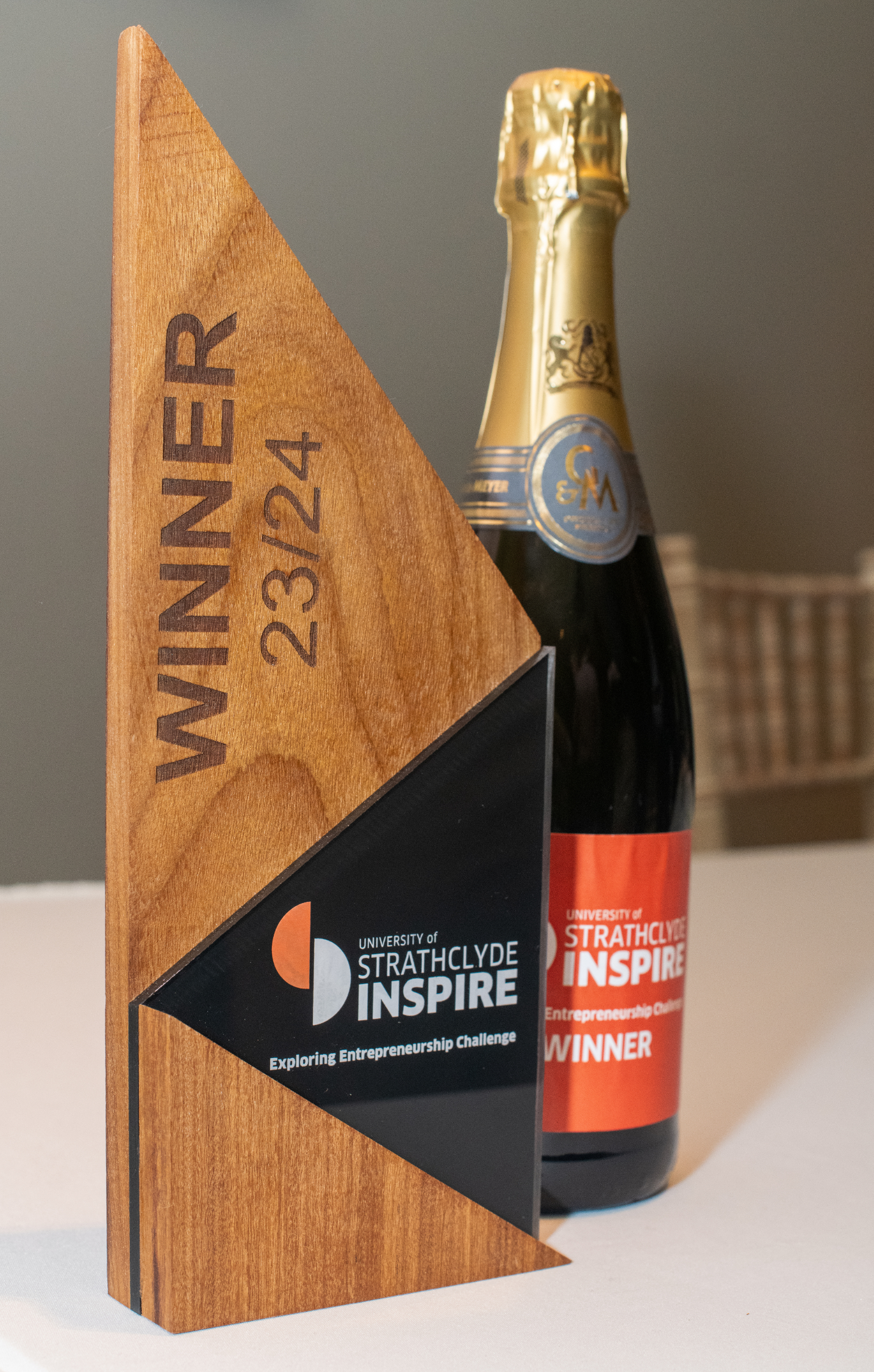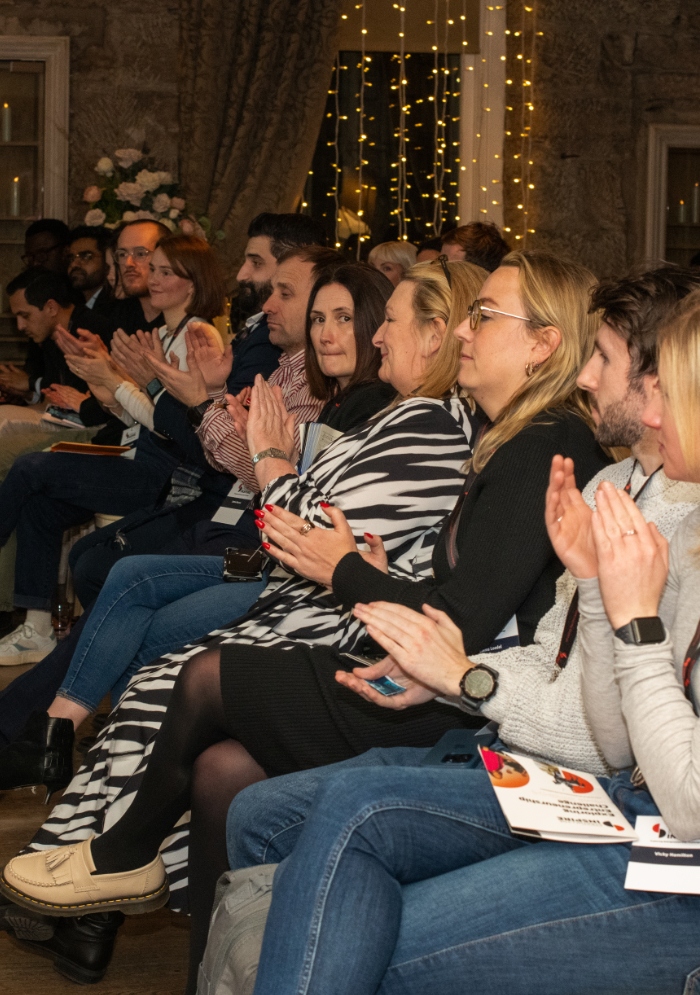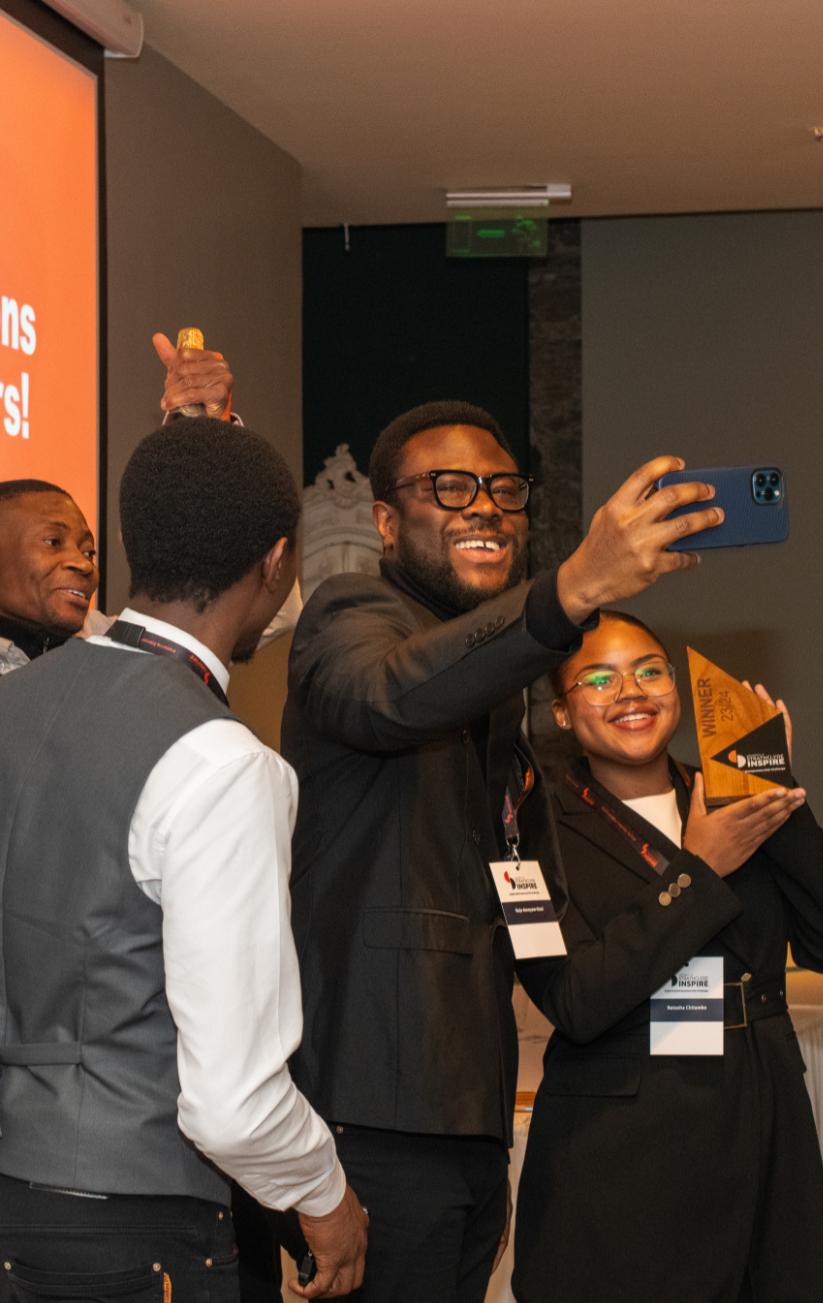Katy McNair, Project Manager for Entrepreneurship For All (E4A), recaps the recent Exploring Entrepreneurship Challenge Final and the value it created for all involved.
Exploring Entrepreneurship Challenge
March has been hectic for the Entrepreneurship for All team. It has mostly been spent planning the Exploring Entrepreneurship Challenge (EEC) Final event, which showcased the five shortlisted student teams and the tremendous effort they invested in developing their pitches for the competition.
EEC 2023-24 launched in September, and it has involved 28 teams of students drawn from every faculty developing their entrepreneurial mindset and putting their creativity, problem-solving and collaboration skills to the test, creating and pitching ideas that could help us towards a more sustainable future.
We’ve been building towards the Final as the culmination of 7-months’ worth of valuable effort. But, as the winning team, StrathEssentials, was awarded £2,000 in front of an audience of their peers, a range of entrepreneurial mentors and supporters, plus staff from across the University, it was clear to me that the EEC’s beginnings reached back for years, and that this Final event was in fact simply another beginning.
What is the Challenge and who is it for?
I think of the EEC as an accessible entry point to entrepreneurship for students with little or no prior experience; a chance to explore how thinking like an entrepreneur can help anyone towards achieving their ambitions, whatever those may be. In fact, Cameron Campbell, an alumnus of Strathclyde and founder of MyGo who worked with the students as a mentor, noted in a LinkedIn post about the EEC:
“50% of the students who took part in the University of Strathclyde’s Exploring Entrepreneurship Programme study a subject that isn’t business; which goes to show anyone CAN and SHOULD start a business. It was tremendous to be mentoring the Strathclyde students exploring entrepreneurship and being inspired by really innovative people and ideas. Some nice flashbacks too from when I took part in the same programme as a student at Strathclyde.”


The importance of mentorship
Also offering mentorship alongside Cameron were Christopher Hoy of Paperflute, Chris Lawlor of Lawlor Technologies, Janani Prabhakaran of Unbaggaged and Vicky Hamilton of Recoil Kneepads. Each of them are connected to Strathclyde through Inspire’s entrepreneurial ecosystem, and they were able to offer EEC participants valuable advice gained from their own start-up journeys as the students began to create and develop ideas that could help to address two UN Sustainable Development Goals.
The expert guidance didn’t end there. Each of the finalist teams received further insight from one of five supporters also drawn from Inspire’s network: Billy Wallace, Rosemary O’Donnell, Craig Johnston, Julie Nixon and Dr Alexis Roberts-McIntosh, who commented:
“The future is bright with such talented and sustainable action focused people in the world!”
Having developed a talented and experienced network who are committed to helping the next generation of changemakers in Scotland is one of the reasons why Strathclyde is able to offer opportunities like the EEC, which deliver on the ambitions voiced in the University’s 2020-25 Entrepreneurial Strategy, and our pioneering approach to make entrepreneurship truly available to all.
How fitting that StrathEssential’s winning idea is to create a circular economy at Strathclyde, supporting students to buy and sell educational resources such as textbooks, labcoats and calculators at reasonable prices, reducing waste and making quality education more affordable and therefore accessible. And that the plaques they received to commemorate their achievement were crafted by University Education Technician Will Noon from old laboratory workbenches.
Fantastic feedback
Following the Final, a range of student EEC participants took part in a Let’s Get Talking event in the Inspire Hub on campus, introducing themselves to more members of the Inspire network. When discussing his experience of the EEC, Business School student and winner Peter McAdoo explained:
“The best part of the Challenge has been meeting the people from different faculties that I never would have got to work with, if it was just part of my course. And people from all over the world, as well.”
Ubong Essien, a PhD student in Chemical and Process Engineering and another member of the winning team added:
“It helped me in getting to know myself and what I can achieve. I drew inspiration from this, and I formed a team of five students from the Department of Chemical and Process Engineering and we went for the Bright SCIdea 2024 Challenge. Luckily we shortlisted to be one of the finalists. So, I found out that I could do more and that I had ideas that were just living inside of me.”
From ideation to action
Moving beyond ideation and ambition towards action, the StrathEssentials team has already taken steps with assistance from the University union and library to turn their idea into reality. They will be able to access further advice from Inspire’s start-up advisor if they wish. A final member of the team, Fidelis Usman, a Mechanical Engineering PhD student, voiced their interest in applying for other opportunities:
“It’s not just an idea. It’s like a baby of ours that we need to grow to maturity. We know there will be struggles along the way, but we are passionate about it. There’s also the Converge competition that is coming up and we intend to apply for that. We know that the sky is our starting point.”
We remain in touch with EEC 2023-24 participants beyond their graduation through a LinkedIn group. Some who will return as students in 2024-25 and beyond are signing up to become Inspire ambassadors, already giving back by seeking to spread the word of the EEC to future cohorts. I have no doubt that the impact of the EEC has not ended here, but has only just begun.
